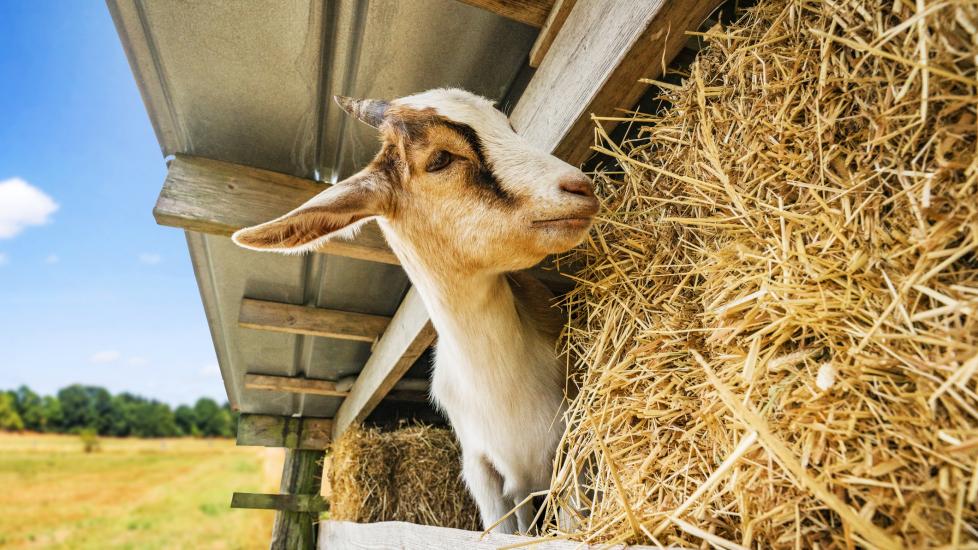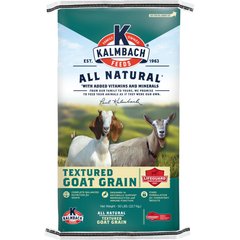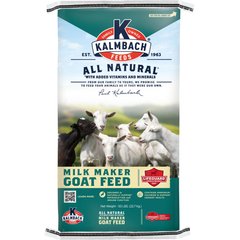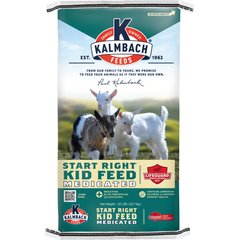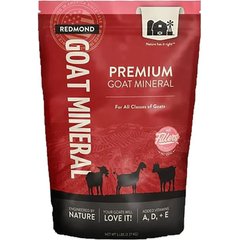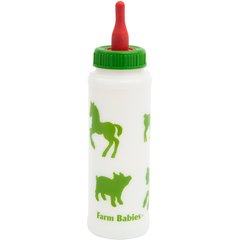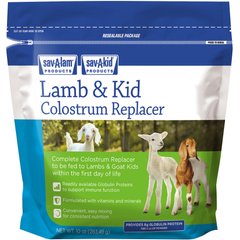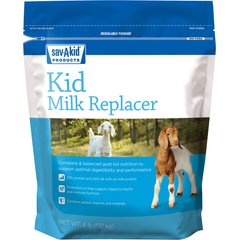What Do Goats Eat?
Sportactive/iStock / Getty Images Plus via Getty Images
Pet goats are becoming more popular in the U.S., which leads many to wonder, “What do goats eat, exactly?” Providing appropriate nutrition is one of the most essential parts of caring for your goat. Here’s what to know about feeding them.
What Do Goats Eat in a Day?
Goats are known for having a hearty appetite, so they are relatively easy to feed. The foundation of a goat’s diet should be forage (hay or pasture). If the goat has additional energy requirements because of pregnancy, lactation, or growth, they may need to be supplemented with a good concentrate or grain.
Goats typically consume a minimum of 1–3% of their body weight of dry matter per day. For maintenance, goats should consume a forage with crude protein concentration between 7–9%. These amounts would increase during times of increased energy needs such as pregnancy, lactation, and growth.
In addition to protein, pelleted feed should contain trace minerals such as:
-
Copper
-
Magnesium
-
Potassium
-
Selenium
-
Zinc
-
Iron
Trace minerals can also be fed “free choice,” available at all times. Make sure to choose a mineral formulation for goats.
Your goat may eat grasses and weedy plants while grazing, but they tend to prefer shrubs and tree leaves. Always keep your goat's specific needs in mind, as different life stages and geographical locations can cause your goat's dietary needs to change. Regularly checking your goat's body condition score will allow you to determine if they need to maintain, gain, or lose weight.
Along with food, ensure your goat always has access to fresh water.
What Type of Hay Do Goats Eat?
Legume hays such as alfalfa hay are higher in nutrients than grass hays. Always ensure that your hay is clean and mold-free.
Hay quality along with the goat’s life stage will determine the amount and frequency they should be given as forage. For example, a goat in late stages of pregnancy or early stages of lactation should be given a good-quality forage such as alfalfa, while a pet goat may do well on moderate-quality grass hay. It is important to note that grains and concentrates that contain sugars and starches should not be given to replace poor-quality hay.
During winters, hay often becomes the primary source of nutrients if it’s too cold for forage to grow.
Commercial Goat Diets
Commercially prepared diets are better than home-formulated mixtures, as they ensure your goat gets all the nutrients they need. Many commercial diets contain plant protein such as soybean meal and other supplements. Overfeeding or improper feeding starches and sugars in the way of concentrates and grains are a common cause of disease in goats.
Treats may be given to pet goats in moderation.
Some great feeds, treats, and supplements that your goat may enjoy are:
Recommended Products
What Can Goats Not Eat?
There are many things that goats cannot eat, including:
-
Meat
-
Tomatoes
-
Eggplant
-
Citrus fruits
-
Garlic
-
Onions
-
Fruits containing a pit
-
Chocolate
Certain plants are toxic for goats. Make sure your goat doesn’t have access to:
-
Milkweed
-
Rhododendron
-
Azaleas
-
Mountain laurel
-
Hemlock
-
Elderberry
-
Lantana
-
Lilies
-
Sago palm
-
Oaks
Signs your goat may have ingested a toxic food include the inability to stand. If your goat cannot stand on their own, contact your veterinarian immediately.
What Do Goats Like To Eat?
The short answer to this question is … everything! Goats are known to try and eat almost anything in front of them, even potentially hazardous non-food items like:
-
Plastic
-
Rope
-
Fabric
-
Trash
Eating inappropriate food items can lead to several problems, so it is essential to monitor what your goat is eating (or can potentially eat) at all times. Items can create obstructions and lead to bloat, a life-threatening condition. Contact your veterinarian if your goat is:
-
Not eating
-
Showing signs of pain
-
Grinding their teeth
-
Drooling
-
Vocalizing more
-
Urinating frequently
-
Exhibiting an abnormal gait
Eating too much carbohydrates (found in corn, oats, wheat, apples, grapes, potatoes, and cereal grains) can cause digestive issues including:
-
Inability to urinate or straining to urinate
-
Inability to stand
-
Bloating
Contact your veterinarian immediately if you suspect your goat is having digestive issues. Correct nutrition is extremely important to maintain their health. Nutrition-related diseases in goats include:
-
Pregnancy toxemia
-
Hypocalcemia
-
Lactic acidosis
-
Clostridium perfringens type C infection
-
Clostridium perfringens type D infection
-
Urolithiasis
-
Polioencephalomalacia
-
White muscle disease
What Do Baby Goats Eat?
When a kid is a few days old, they can be exposed to hay. Generally, baby goats will be ready to wean off the bottle or mom’s milk after 6 weeks of age.
Once weaned, feed growing kids a high-quality diet formulated to help them grow. Kids can be separated from their mothers at around 3–4 months of age.
Recommended Products
How To Feed a Goat
When determining how much to feed your goat each day, refer to the feeding instructions on their feed bag. Remember that your feed may be intended for multiple species, so quantities may vary for goats. Consider the life stage of your goat and their energy/nutritional requirements.
Feeding in a trough or off the ground is important to help decrease waste as well as parasite exposure.
Fresh clean hay and water should always be available to your goat. Use hayracks to keep hay off the ground, but avoid using nets because goats can become entangled and may eat the net material.
Take space into consideration, especially if you have more than one goat. Each should have enough space to eat comfortably at the same time.
Recommended Products
References
1. Van Saun R, Mongini A. VetFolio. www.vetfolio.com. 2017.
2. Balch S. Nutrition of Goats — Management and Nutrition. Merck Veterinary Manual. 2022.
3. Pugh D. Nutritional Requirements of Goats. Merck Veterinary Manual. 2022.
4. Freking B, McDaniel J. Oklahoma Basic Meat Goat Manual, Chapter 5 Goat Nutrition. Oklahoma State University Press.
5. Bebout E. Plant Toxicity Concerns for Goats. Pet Poison Helpline. 2020.
6. Oklahoma State University. Grain Overload in Goats. 2020.
